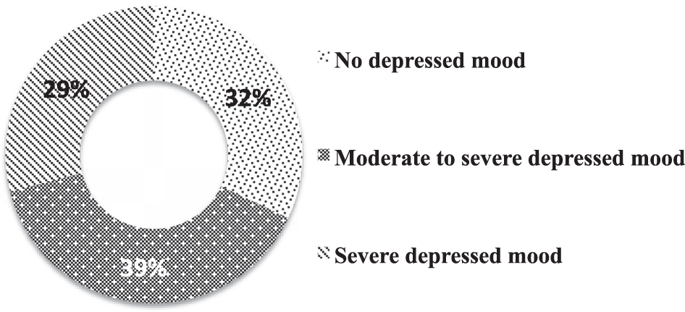Spinal Cord ( IF 2.2 ) Pub Date : 2020-03-23 , DOI: 10.1038/s41393-020-0451-5 Shambhu P Adhikari 1 , Geetu Gurung 2 , Barsha Khadka 3 , Chanda Rana 4

|
Study design
Cross-sectional.
Objectives
To investigate factors influencing depressed mood in individuals with traumatic spinal cord injury (TSCI) and caregivers’ perceived burden in a low-income country.
Setting
Dhulikhel Hospital and Spinal Injury Rehabilitation Center, Nepal.
Methods
We recruited 95 couples (one person with spinal cord injury and one caregiver) aged 18–65 years. Participants with various levels and types of TSCI with post-injury duration of or providing care for ≥1 month were eligible for the study. The Nepali Beck Depression Inventory and the Zarit Burden Interview-12 were used to identify depressed mood of those with TSCI and caregivers burden, respectively. Linear regression analyses to explore associations was performed.
Results
Mean ages of the individuals with TSCI and caregivers were 34.8 (11.0) and 33.6 (12.3) years, respectively. Most of the participants with TSCI were male (67.4%) and (73.7%) had paraplegia. The caregivers were predominantly female (61.1%). Depressed mood was seen in 68% of those with TSCI, and burden was reported by 91.6% of caregivers. Depressed mood was significantly associated with gender, education, lesion type, and duration since the injury. Caregiver burden was associated with occupation, education, level of injury, length of care, and depressed mood level in the person with TSCI. Economic burden was found to be the highest (71.5%) followed by responsibility (22.2%) and time-related (6.3%) burden.
Conclusions
The prevalence of depressed mood among individuals with TSCI and the burden of caregiving among caregivers was high. Depressed mood in those with TSCI was associated with caregiver burden. Country-specific contextual factors need to be considered in deriving rehabilitation protocols.
中文翻译:

低收入国家创伤性脊髓损伤患者抑郁的影响因素和护理人员的感知负担:横断面研究
学习规划
横截面。
目标
调查影响创伤性脊髓损伤 (TSCI) 患者抑郁情绪的因素和低收入国家护理人员的感知负担。
环境
尼泊尔 Dhulikhel 医院和脊髓损伤康复中心。
方法
我们招募了 95 对年龄在 18-65 岁之间的夫妇(一名脊髓损伤患者和一名护理人员)。具有不同级别和类型的 TSCI 且伤后持续时间或提供护理≥1 个月的参与者有资格参加本研究。尼泊尔贝克抑郁量表和 Zarit Burden Interview-12 分别用于确定患有 TSCI 和照顾者负担的人的抑郁情绪。进行了线性回归分析以探索关联。
结果
TSCI 患者和照顾者的平均年龄分别为 34.8 (11.0) 和 33.6 (12.3) 岁。大多数 TSCI 参与者是男性 (67.4%) 和 (73.7%) 有截瘫。照顾者主要是女性(61.1%)。68% 的 TSCI 患者出现抑郁情绪,91.6% 的护理人员报告了负担。抑郁情绪与性别、教育程度、病变类型和受伤后持续时间显着相关。照顾者的负担与 TSCI 患者的职业、教育、受伤程度、照顾时间和抑郁情绪水平有关。发现经济负担最高 (71.5%),其次是责任 (22.2%) 和与时间相关的 (6.3%) 负担。
结论
TSCI 患者情绪低落的患病率和护理人员的护理负担很高。TSCI 患者的抑郁情绪与照顾者的负担有关。在制定康复方案时需要考虑国家特定的背景因素。

























 京公网安备 11010802027423号
京公网安备 11010802027423号